Viewpoints: UK trade v human rights
- Published
- comments
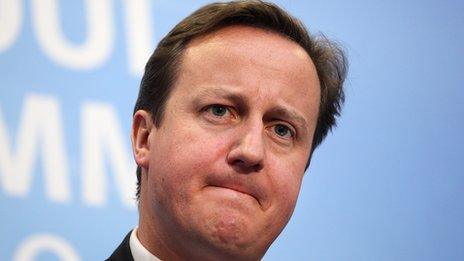
Prime Minister David Cameron is under fire for his decision not to join a boycott of the Commonwealth summit in Sri Lanka. He is also attempting to build bridges with China after he angered its leaders last year by meeting the Dalai Lama.
Is he getting the balance right between promoting British trade and other interests abroad and human rights?
Dr Stephen Davies, education director at the Institute for Economic Affairs
"Everyone wants to see individual liberty expanded in all parts of the world - the question is how to do this most effectively.
"The key is to expand 'social power', the ability of people to act, and to reduce 'political power', the capacity of elites to use force and the power of government against people to limit their freedom of action, speech and thought.
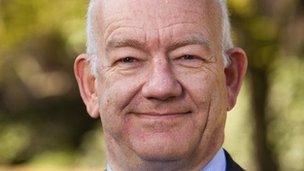
Stephen Davies is a former lecturer in economic history at Manchester Metropolitan University
"More trade is crucial for this. It undermines the power of despots, their ability to control populations, while increasing ordinary people's resources, their connections with each other and their ability to organise and co-operate.
"The spread of the mobile phone through trade and commerce has done more to undermine authoritarian government than any amount of action by more liberal states.
"While we should all strongly support action by civil society organisations such as Amnesty it is not clear what governments should do.
"The main role of governments is to protect the rights of their own citizens and to provide a stable system of law for them.
"Attempts to make greater trade dependent upon changes in policy will simply lessen the kind of transformations brought about by trade and private action, which in the longer run will do more to increase liberty and undermine tyranny."
Allan Hogarth, head of policy and government affairs at Amnesty International UK
"In all its foreign relations it's absolutely vital that the UK government raises human rights issues with as much enthusiasm as it does trade ones. Presently, we're far from convinced the government is getting this balance right.
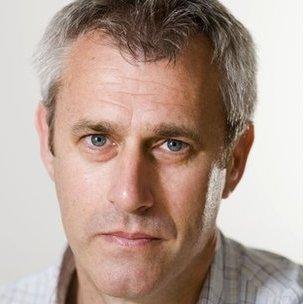
Allan Hogarth recently completed an MSc from Birkbeck university in global politics
"So it's vitally important that human rights are not downplayed when the prime minister visits China next month. While we understand that No 10 is keen to develop trade with China, this must not be done by turning a blind eye to China's absolutely dreadful human rights record.
"We'd like to see Mr Cameron and other senior members of government publicly raising human rights concerns with senior Chinese officials.
"One case they should raise is that of Cao Shunli, a prominent activist who's been detained for two months under a charge of 'picking quarrels and making trouble'. She's one of numerous prisoners of conscience in China.
"Meanwhile, we'd like to see the prime minister meeting Chinese human rights activists during the visit. We'd be happy to personally brief Mr Cameron or his officials prior to the visit.
"Announcing the trip during his Lord Mayor's Banquet speech, Mr Cameron said he wants Britain to show an 'entrepreneurial, buccaneering spirit, where people who take risks to make money are celebrated and admired.
"However, historically speaking a buccaneer is a pirate acting with total contempt for the law. We need to make sure that countries like China aren't themselves acting lawlessly."
Richard Ottoway, Tory chairman of the Commons Foreign Affairs Committee

Richard Ottoway is a former member of the influential Intelligence and Security Committee
"It is not a perfect world so there will always be conflict between our interests and our values.
"Boycotting countries just to emphasise our values will achieve very little and could be counter-productive.
By far the most effective way is to argue our case in private, as we do in a number of countries around the world."
William A Callahan, professor of International Relations, London School of Economics
"China is well-known for having a pragmatic approach to international relations.
"Since Deng Xiaoping launched the policy of economic reform and opening up to the outside world in 1979, Beijing has quite effectively separated economic issues from political ones in its international strategy. One could say that David Cameron is taking a Deng-ist approach to the UK's relations with China because his government now sees the People's Republic of China as an economic opportunity rather than as a human rights problem.
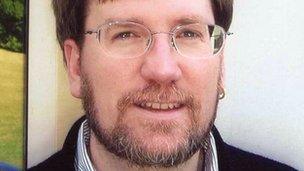
William A Callahan's most recent book is China Dreams: 20 Visions of the Future
"But this would be a mistake.
"Recently, Beijing has retooled its diplomatic strategy to focus on political issues as well as economic development. Since he became China's new leader last year, Xi Jinping has stressed the role of values in Chinese diplomacy.
"Rather than talking about the rise of China in terms of geo-economic power, Xi declared that his 'China Dream' is the 'rejuvenation of the Chinese nation' as a moral force in global affairs.
"The Chinese government now promotes a combination of socialist values (equality, stability and justice) and Confucian values (order, harmony and family) not just at home but on the world stage. Beijing's 'values diplomacy' is specifically designed to provide an alternative to the liberal values of freedom, human rights and the rule of law.
"Since the UK is known in China as a human rights superpower, it would be a shame if Cameron missed the opportunity to join in the values debate that is already raging in the People's Republic of China.
"If you want the Chinese people to take you seriously, it is best to speak honestly about differences."
Ann Clwyd, a Labour member of the Commons Foreign Affairs Committee
"It is not a trade issue, but the Commonwealth Heads of Government Meeting is a very important meeting. We put forward a strong argument (in committee) why the UK should not be going there because of human rights concerns, the past failure of the Sri Lankan government to investigate some of the many allegations about that country.
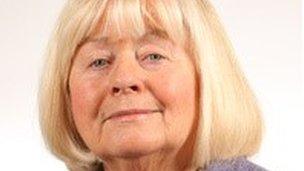
Ann Clwyd was Tony Blair's special envoy on human rights in the run-up to the Iraq war
"I have met the president of Sri Lanka myself and I have put to him the case for allowing a proper investigation into what went on in the civil war. There were atrocities on both sides but they are still refusing to allow a UN investigation. By going to a conference of this kind, it is giving the wrong signal about where the UK is coming from.
"World leaders should be allowed to raise these issues. We will see in a few days whether Cameron and Hague have done this in Sri Lanka.
"On trade and human rights, we have constantly debated this in our committee.
"We understand there must be trade but at the same time we ask that human rights is up at the top of the agenda, not just mentioned in a few sentences as a throwaway.
"It must be on the agenda and it must be discussed."
- Published15 November 2013
- Published11 November 2013
- Published15 October 2013